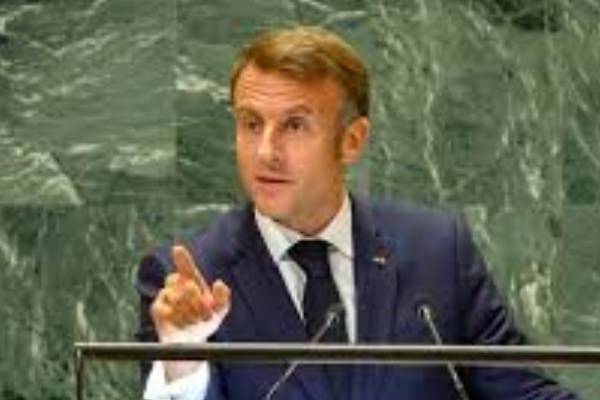France will recognise Palestine as a state, President Emmanuel Macron has said.
Macron said in a post on X on Thursday that he will formalise the decision at the United Nations General Assembly in September.
The move makes France the largest and arguably most influential country in Europe to move to recognise a Palestinian state, after European Union members Norway, Ireland and Spain indicated they would also begin the same process.
At least 142 countries out of the 193 members of the UN currently recognise or plan to recognise a Palestinian state, but several powerful Western countries have refused to do so.
They include the United States, United Kingdom and Germany.
The announcement comes as European anger over Israel’s war on Gaza, which has killed 59,587 Palestinians, and severe restrictions on aid deliveries that have led to a hunger crisis, has grown.
Earlier this week, France joined the United Kingdom, Australia, Canada and 21 other allies of Israel in condemning restrictions on aid shipments into Gaza, as well as the killings of hundreds of Palestinians trying to reach food.
The joint statement, the most significant yet from Western countries, said the war “must end now”.
Macron had previously indicated his “determination to recognise the state Palestine” and France’s foreign minister is set to co-host a conference at the UN next week on a two-state solution to the decades long conflict.
The UK government has also said that Prime Minister Keir Starmer intends to coordinate with allies France and Germany in an urgent phone call regarding the situation in the Gaza Strip on Friday.
Starmer said that a ceasefire in Gaza will “put us on a path to the recognition of a Palestinian state and a two-state solution which guarantees peace and security for Palestinians and Israelis.”
In his post on Thursday, Macron shared a letter to Palestinian Authority President Mahmoud Abbas in which he outlined his intent.
In response, Abbas’s deputy, Hussein al-Sheikh, praised the French leader.
Former Palestinian leader Yasser Arafat unilaterally declared an independent Palestinian state during the first intifada in 1988, with Algeria swiftly becoming the first country to officially recognise the state.
Dozens of countries, predominantly in the Middle East and Africa, followed within a week, in a list that has grown steadily since Israel launched its war in Gaza following Hamas’s attack on southern Israel on October 7, 2023.
But major barriers remain to the creation of a future Palestinian state.
Israel currently occupies the Palestinian territories, including East Jerusalem, long considered the capital of future Palestinian state.
The Israeli government has overseen a major expansion of Israeli settlements, illegal under international law, across the occupied West Bank, in what rights observers have described as effective annexation.
Earlier this week, Israel’s parliament approved a symbolic measure explicitly calling for the annexation of the territory, which it initially seized in the 1967 war against Egypt, Jordan and Syria.
Responding to Macron’s announcement on Thursday, Israeli Foreign Minister Israel Katz called the move “a disgrace and a surrender to terrorism”.
“We will not allow the establishment of a Palestinian entity that would harm our security, endanger our existence, and undermine our historical right to the Land of Israel,” he said.





